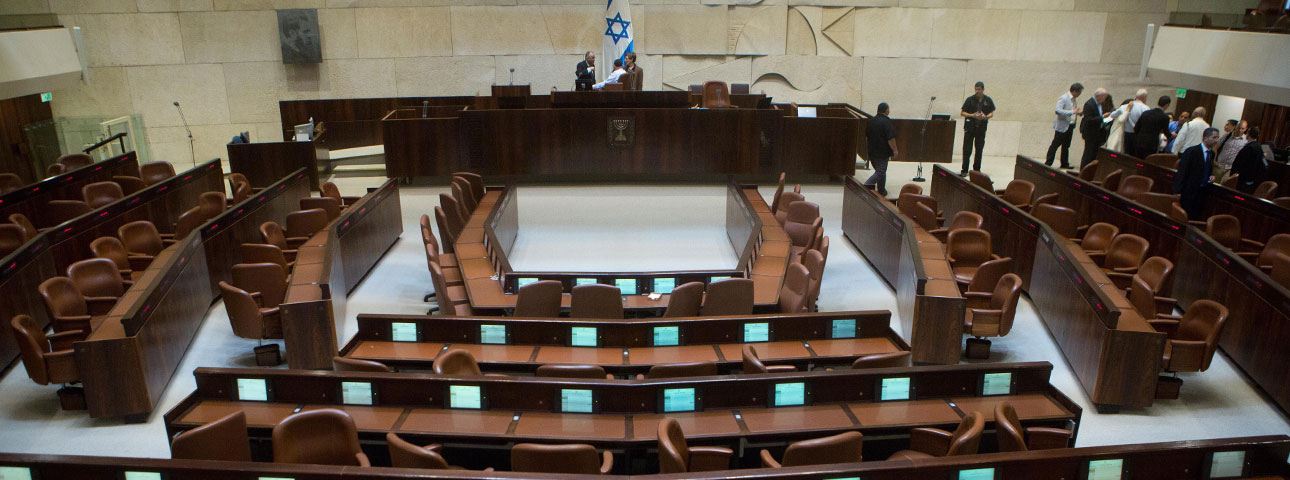How Many Knesset Members Have Lasted in Politics Since 2009?
The data reflects a very high turnover rate in Israel's political system. This has both positive and negative aspects. On the one hand - a robust political system should be refreshed - but it can also be a symptom of a "sick" system

Flash 90
Moshe Kahlon, Tzipi Livni, Ehud Barak, Shelly Yachimovich, Eli Yishai, Shaul Mofaz, Isaac Bougie Herzog, Ariel Atias, Amir Peretz, Zehava Galon, Aryeh Eldad, Hanin Zoabi, Zevulun Orlev, Muhammad Bracha, Sofa Landver, Meir Sheetrit , Limor Livnat, Silvan Shalom, Dov Hanin, Dan Meridor, Ofir Pines, Eitan Cabel and more and more ....
What does this respectable list of politicians have in common? They were all prominent players in the 18th Knesset, the one elected only 12 years ago. And all of them are no longer active politicians.
In fact, only 25 of the 120 MKs elected in the 2009 election have survived and are expected to be elected this time as well. In other words, within 12 years, 95 MKs have "disappeared from the map." In some parties this phenomenon is particularly noticeable. In the Labor Party, for example, not even one of the 13 MKs elected on its behalf 12 years ago will serve in the next Knesset.
To this list we can of course add other prominent figures who entered politics later (after 2009) and have already managed to retire, some after a rather short term. Some of these names include Stav Shaffir, Shai Piron, Avi Gabay, Aliza Lavie, Erel Margalit, Roi Folkman. More recently, we've seen - Gabi Ashkenazi, Avi Nissenkorn, Itzik Shmuli, Miki Haimovich, Ofer Shelach [maybe] and more search for a quick escape route.
So is such a large turnover good or bad?
On the one hand, politics needs refreshed refreshing update from time to time... a reasonable level of exchange of personalities is good and healthy.
On the other hand, when there is such an extreme amount of turnover, it may harm the work of the Knesset in terms of continuity, specialization and experience.
MKs by seniority - After Amir Peretz's retirement of from political life, there are only 3 other MKs left from the “Class” of 1988, those elected to the Knesset in the 1988 elections: Moshe Gafni, Tzachi Hanegbi and Benjamin Netanyahu. Benny Begin will probably join them for a "comeback" for the fourth time!
After them, the longest serving (despite the "exile" of 14 years from the Knesset) is Aryeh Deri, who was first elected in 1992, followed by: Meir Porush and Yuli Edelstein, who entered the Knesset in 1996.
This data reflects a very high turnover rate in Israel's political system. According to Prof. Ofer Kenig, this phenomenon has both positive and negative aspects. On the one hand - a robust political system should be refreshed with fresh forces that are full of energy, highly motivated and full of new ideas. In this respect - a reasonable level of change in personnel is healthy for the system.
On the other hand, an abnormally high level of turnover - can also be a symptom of a "sick" system: one in which parties emerge and disappear at a rapid pace, where public trust is lacking and where the status of individual politicians is low. It should also be understood that such a high turnover could harm the workings of the Knesset. Parliamentary work is a complex matter that requires specialization and experience. Without continuity and accumulation of seniority, the quality of Knesset work may be harmed.
